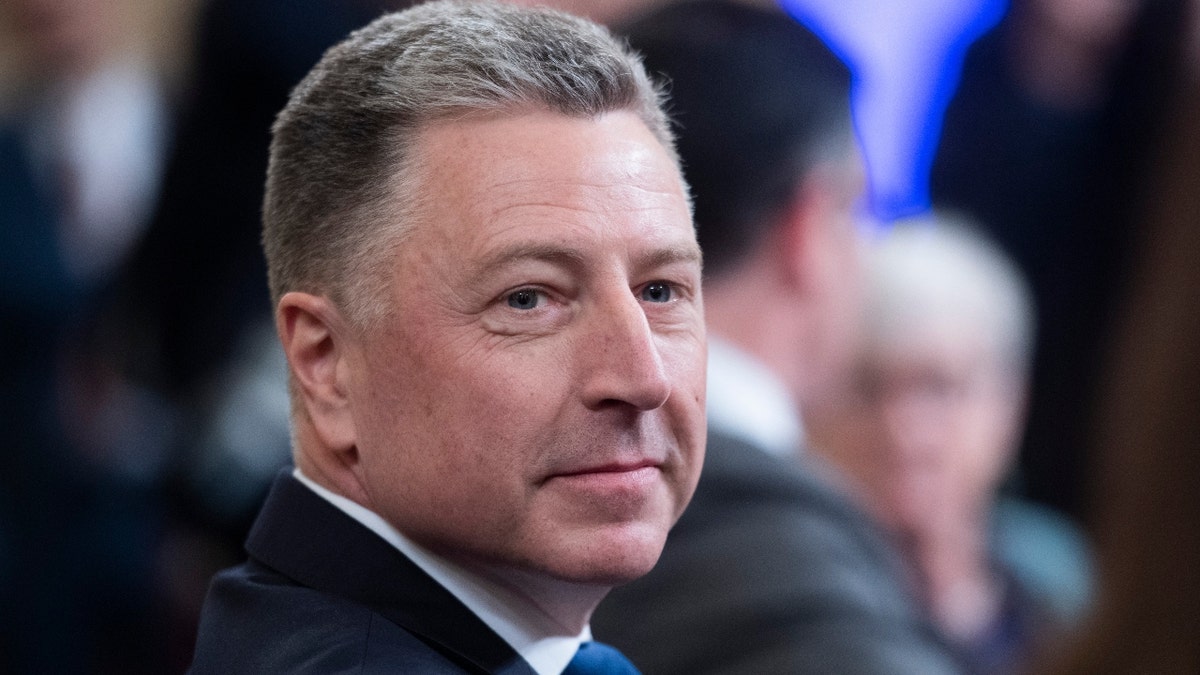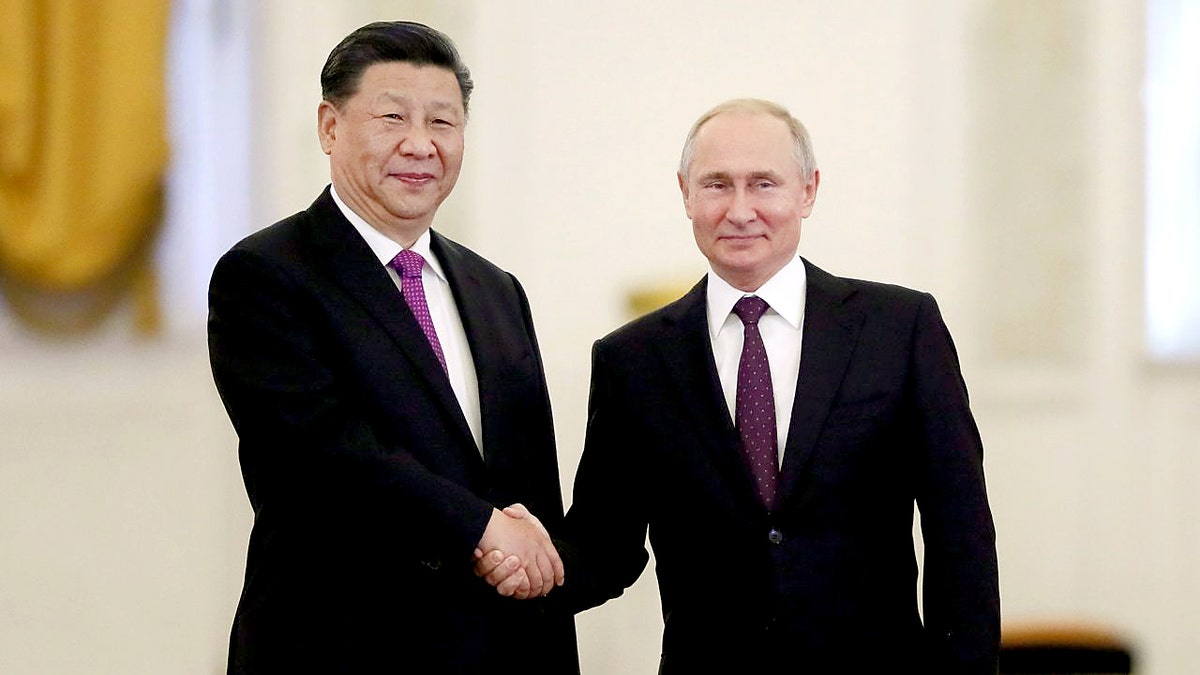Sen. Ted Cruz says US can provide more 'offensive weaponry' to Ukraine, unleash American energy to aid victory
Sen. Ted Cruz, R-Texas, joined 'America's Newsroom' to detail how the U.S. can help Ukraine win its war against Russia.
Kurt Volker, former U.S. ambassador to NATO and U.S. special representative for Ukraine, believes Russian President Vladimir Putin has "put himself on a plank."
Volker made the comments on an episode of "Intelligence Squared," a podcast dedicated to the art of informed debate, set to air Friday. Volker debated whether the United States should intervene in Russia's invasion of Ukraine with Emma Ashford, a resident senior fellow at the Atlantic Council's Scowcroft Center for Strategy and Security.
"Putin has basically put himself on a plank. He has launched a military operation that he believed would take a few days and would be successful," Volker said. "Anything but the case, his military is having a very hard time in Ukraine. They've lost thousands of soldiers, lots of equipment, and [are] having a hard time reconstituting their offensive. And they brought on massive sanctions against the Russian economy, which are going to hurt very, very deeply."
RUSSIA INVADES UKRAINE: LIVE UPDATES

Kurt Volker, former U.S. special envoy to Ukraine. (Tom Williams/CQ Roll Call)
Volker added that Putin's "only way to stay in power is to pursue a military victory."
But even if a military victory is in store for Putin, Russia's future relationships with other countries remains increasingly isolated and unstable – and not only in the West. Foreign policy experts, including Volker, have noted strained tensions in recent weeks between Russia and its most significant ally, China, amid its invasion of Ukraine.
"Putin is bent on taking territory, destroying Ukraine as a country. … And I would like to come back to that China has no interest in that at all, and, I think is trying to distance itself a little bit from Russia's military actions, including, for instance, abstaining at the U.N. rather than supporting Russia," Volker said earlier in the podcast episode, referencing a Feb. 25 U.N. resolution condemning Putin's Feb. 24 invasion of Ukraine.
The resolution holds no legal authority but serves as a symbol of global unity against Putin as only five of the 181 nations present for the vote opposed the measure.
China's sole interests in Asia "revolve around regaining Taiwan, which they do not view as a parallel with Ukraine," Volker said.

Russian President Vladimir Putin shakes hands with his Chinese counterpart Xi Jinping at the Kremlin in Moscow, June 5, 2019. (Reuters/Evgenia Novozhenina/Pool)
"Putin may think of it as a parallel, but China knows and has recognized Ukraine as a sovereign state – as a member of the United Nations. And what Russia is doing is attacking a sovereign state and trying to wipe it out. That is not something that China is interested in doing or being associated with," he explained. "China also looks at Russia as a declining power – small in economic scale, small population, and not getting better, and not taking good care of its own people. Very much of a thuggish regime."
While China and Russia are aligned in their opposition to the West dominating "the global order," China sees itself as a country that has "lifted hundreds of millions of people out of poverty and taking care of its population" and "cares about advancing the state," the former NATO ambassador said.
Volker and Ashford argued broadly about the United States' stance defending Ukraine, Ukraine's place in or outside NATO, the benefits or downsides of sanctions against Russia, and more over the course of the podcast episode.
Ashford argued that the U.S. does not have "a moral obligation to defend people all around the world against whatever may come their way."
"[W]e live in a world where the things that we can achieve have to be bounded by reality. And again, we have drawn this very clear line between NATO states and non-NATO member states prior this conflict for a reason," she said. "The states that are currently in NATO … we can question the wisdom of that expansion, but we have been planning to defend them. We have U.S. forces in place. Ukraine is a completely different situation – one in which we're not prepared to defend them."

Firefighters work to extinguish a blaze at a damaged logistic center after shelling in Kyiv, Ukraine, Thursday, March 3, 2022. (AP Photo/Efrem Lukatsky)
Ukrainian President Volodymyr Zelenskyy has been pushing for NATO to implement a no-fly zone over Ukraine, but the organization ruled out the move out of fear that it could worsen the conflict.
Ashford also argued that while the humanitarian impacts of the war must be minimized, she believes sanctions against Russia will only hurt the U.S. in the long run because they will strengthen Russia's relationship with China over the coming years.
Volker, meanwhile, believes the U.S. is "well-positioned" to defend Ukraine "because we have a Ukrainian government that does show extraordinary bravery and determination and resolve to defend their country and a Ukrainian military that has done an exceptional job defending Ukraine against a massive Russian Army," while the Russian military "has had a disastrous time trying to invade Ukraine for a number of reasons."
CLICK HERE TO GET THE FOX NEWS APP
Many major U.S. companies have pulled operations out of Russia in protest of its actions in Ukraine. President Biden on Tuesday evening announced a U.S. ban on all oil, natural gas and coal from Russia.
Zelenskyy thanked Biden for the move and said the ban was "striking in the heart of Putin’s war machine ... Encourage other countries and leaders to follow."
Fox News' Caitlin McFall and Brie Stimson contributed to this report.


